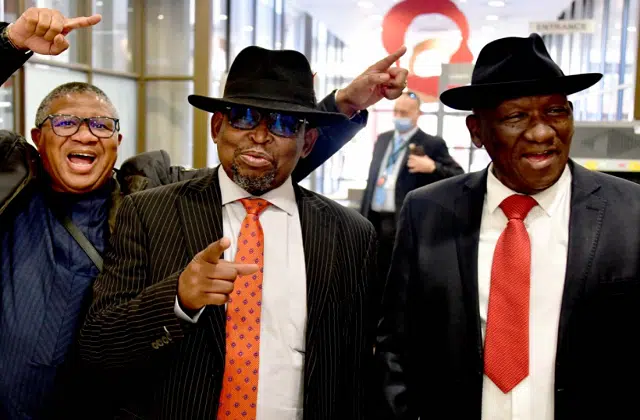
Nearly a quarter of South African households depend on grants as main source of income: survey
Civil society organisations are taking the government to court over what they say are “unfair” and “exclusionary” regulations for the Social Relief of Distress (SRD) grant.
According to Statistics South Africa (Stats SA), social grants make up the primary source of income for 24.4% of all households in the country.
The rollout of the Covid-19 SRD grants in 2020 played a central role in protecting individuals and households against the loss of income over the past few years and is the second most important source of income for households after salaries, Stats SA said.
However, access to the grant has become highly restrictive, with civil society groups now pushing back.
In a media briefing on Thursday, the Black Sash, #PayTheGrants, Amanda.mobi, the Centre for Applied Legal Studies (CALS), the Institute for Economic Justice, and the Social Policy Initiative announced that they filed an application against the government in the High Court in Pretoria to have the current regulations declared unconstitutional and set aside, GroundUp reports.
The groups are also pushing against the ‘arbitrary means test’ that bars already vulnerable South Africans who had previously been eligible for the grant from accessing the grant if they earn more than R350 a month.
According to GroundUp, since April 2022, over 10 million grant applicants have not been paid, leading to the Institute for Economic Justice’s lawyers sending a letter of demand to address the urgent concern.
Rachel Bukasa from civil organisation Black Sash said the new grant application process, introduced at the beginning of the month, is littered with problems. People who receive more than one grant, such as a mother on a child support grant and the SRD, are being disqualified.
The national director of the Black Sash said they would challenge unfair practices in cases where grants were not paid and added that the new regulations are too restrictive, especially when the cost of food and other expenses are on the rise.
Where the grants are going
Grants were most important as the primary source of income for households in Eastern Cape (42.0%) and Limpopo (35.2%).
Stats SA said that due to the high uptake of the R350 per month grant, the percentage of individuals who accessed grants increased to 35.7% in 2021, while the percentage of households that received at least one grant increased to 50.6% in 2021.






